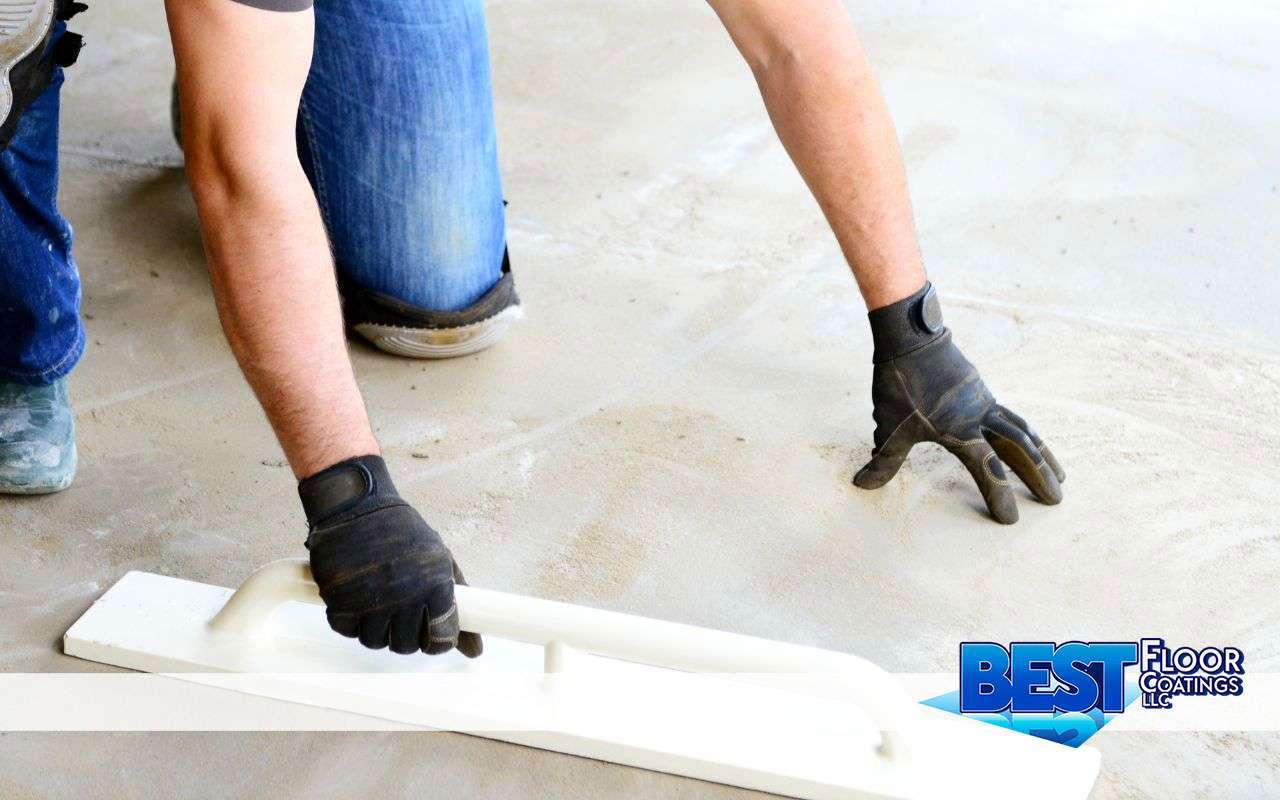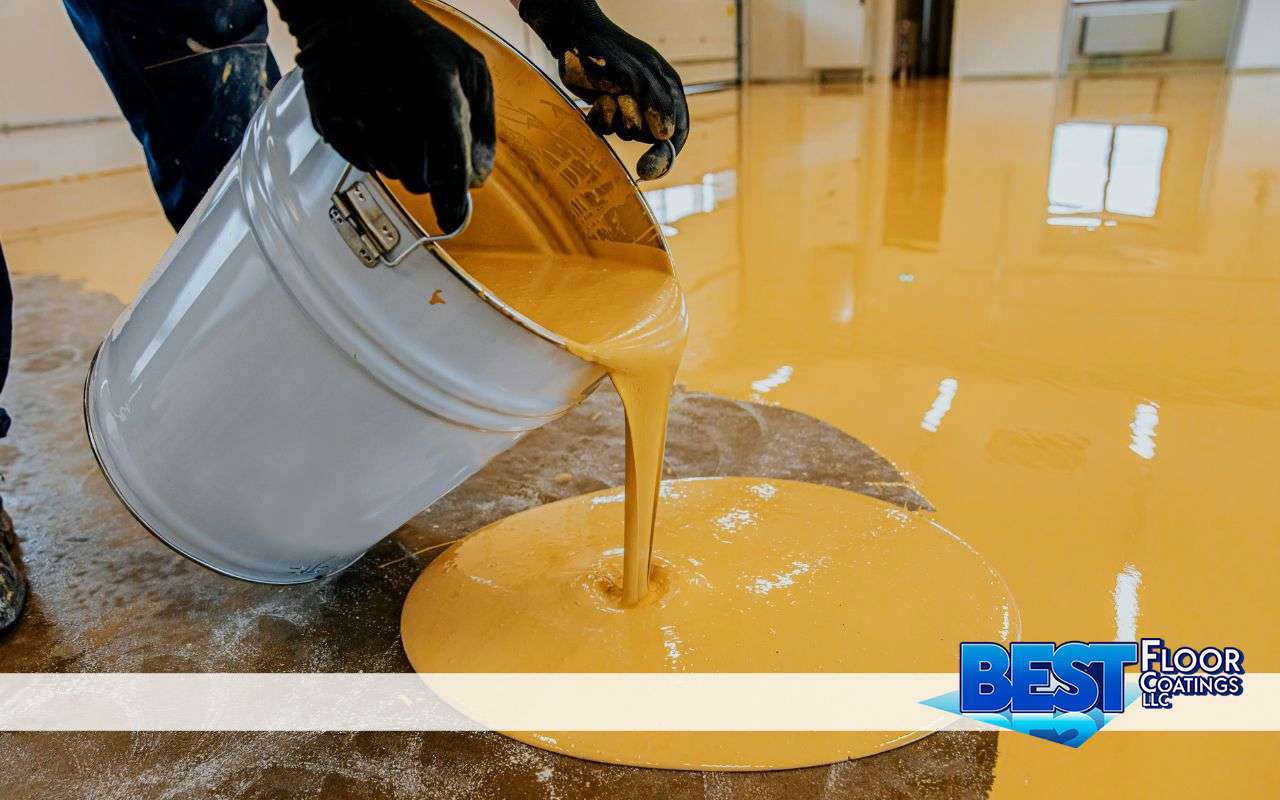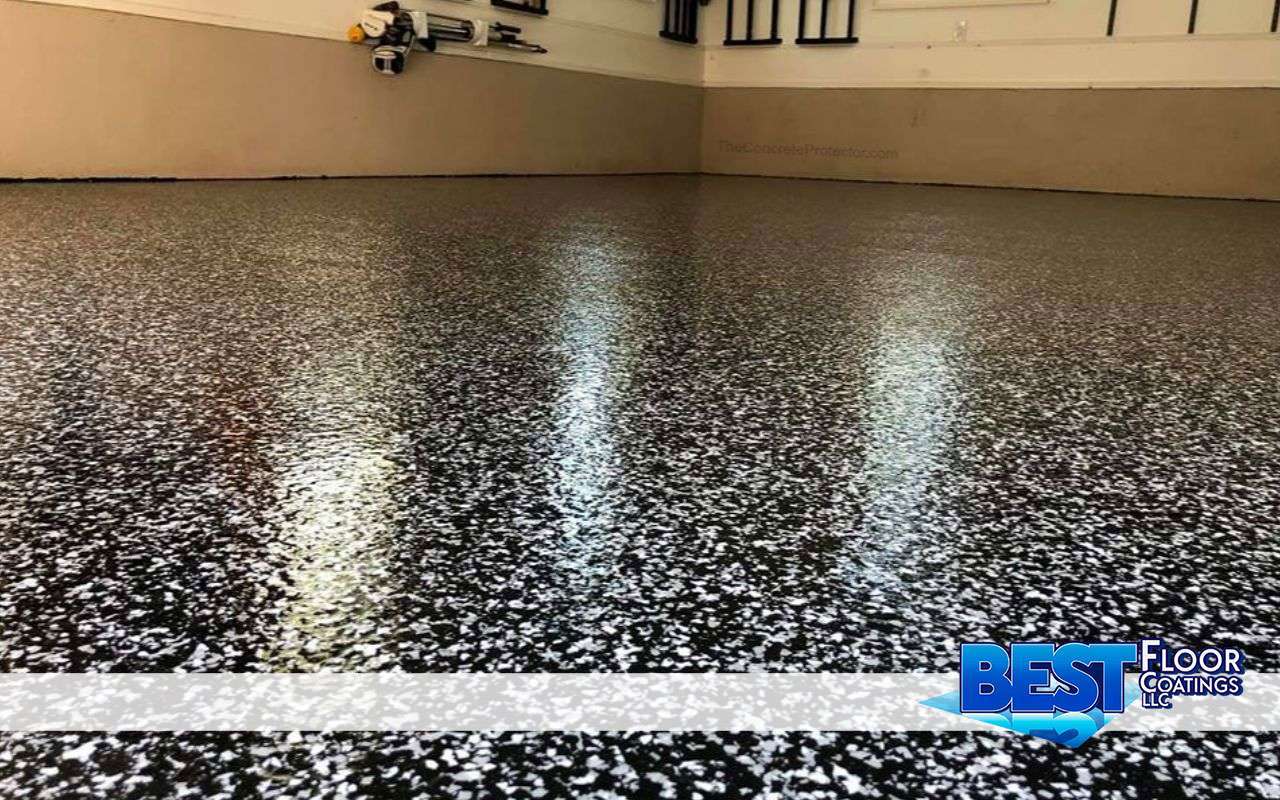
If you have a concrete floor and suffer from degrading, it’s time for a coating! This great blog will teach you the different types of concrete flooring coats.
There are a variety of concrete floor coatings that can be used to protect and improve the appearance of concrete floors. The type of coating that is best for a particular concrete floor will depend on the intended use of the floor and the desired results.
The most common types of concrete floor coatings are epoxy, polyaspartic, and acrylic. Continue reading this blog to learn more about concrete floor coating types.
#1 Epoxy Concrete Floor Coating

Epoxy floor coatings are known for their hardness, durability, and impact resistance. These properties make epoxy coatings ideal for harsh applications such as factories, warehouses, distribution centers, and other areas where forklift traffic may be high. Epoxies also resist chemicals such as bleach, oils, greases, and detergents.
#2 Polyaspartic Concrete Floor Coating
One of the main advantages of polyaspartic acid is that it can be used both as a complete flooring system and as a top coat. In other words, poly aspartic acid floor coatings can accomplish in one coat what traditional epoxy and polyurethane typically require two coats. As a result, polyaspartic acid can significantly reduce application time, labor costs, and material costs.
Another advantage of polyasparagine floor coatings is their ability to be customized. Polyaspartic can be manipulated to control drying time and pot life. This feature reduces lag times and enables faster plant restarts. Some coatings dry within hours and are ready to use the next day again.
#3 Acrylic Concrete Floor Coating

Acrylic floor coatings are less durable than their epoxy or polyurethane counterparts. As such, it may need to be sanded or re-coated more often than other coatings. As a result, the initial cost of acrylic floor coatings can be relatively low. Still, long-term maintenance costs tend to be higher than other coatings.
These drawbacks make acrylic floor coatings ideal if you want to decorative concrete, add surfaces with minimal foot traffic, and areas with minimal risk of abrasion or chemical splash. However, specific acrylic formulations can offer superior performance characteristics such as enhanced UV protection, slip resistance, and water resistance.
Water-based treatments are typically more environmentally friendly than solvent-based treatments, and are also easier to clean up. However, solvent-based treatments may provide better durability in some applications.
Remember
Concrete surfaces must be properly prepared before the coating is applied. Treatment methods may include mechanical abrasion or pressurized water washing. Concrete moisture testing may also be warranted, mainly if previous problems have been observed. Concrete coatings can significantly extend their valuable services in many applications.
Successful painting requires appropriate surface preparation methods and selecting the proper coating type based on performance requirements and the operating environment.
Get Professional Assistance
To decide which type of treatment is right for your project; you will need to consider the intended use of the space, the level of foot traffic, and any special requirements such as slip resistance. You will also need to consider the space’s environmental conditions, such as temperature and humidity.
If you are not sure which type of treatment is right for your project, you can always consult with a professional flooring contractor. Contact Best Floor Coatings LLC to provide you with the best assistance with outstanding results. They will be able to assess your needs, and recommend the best solution for your space.
